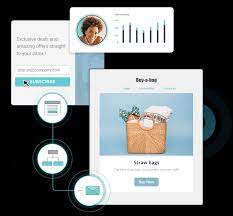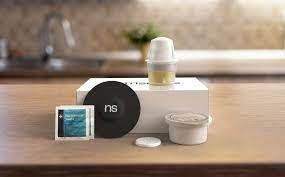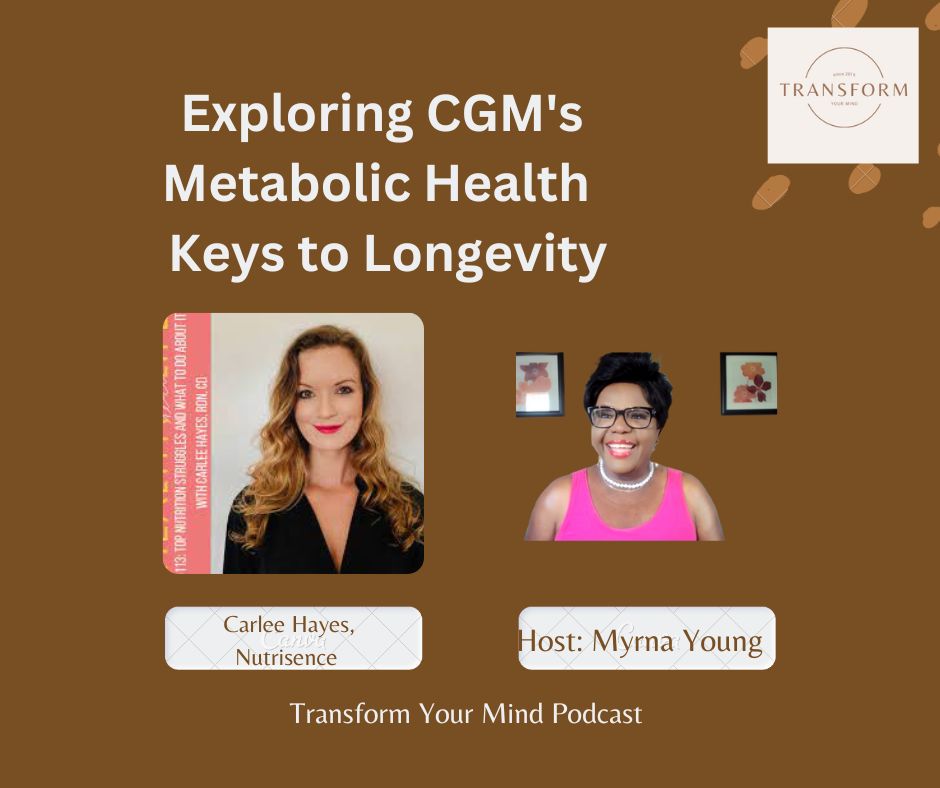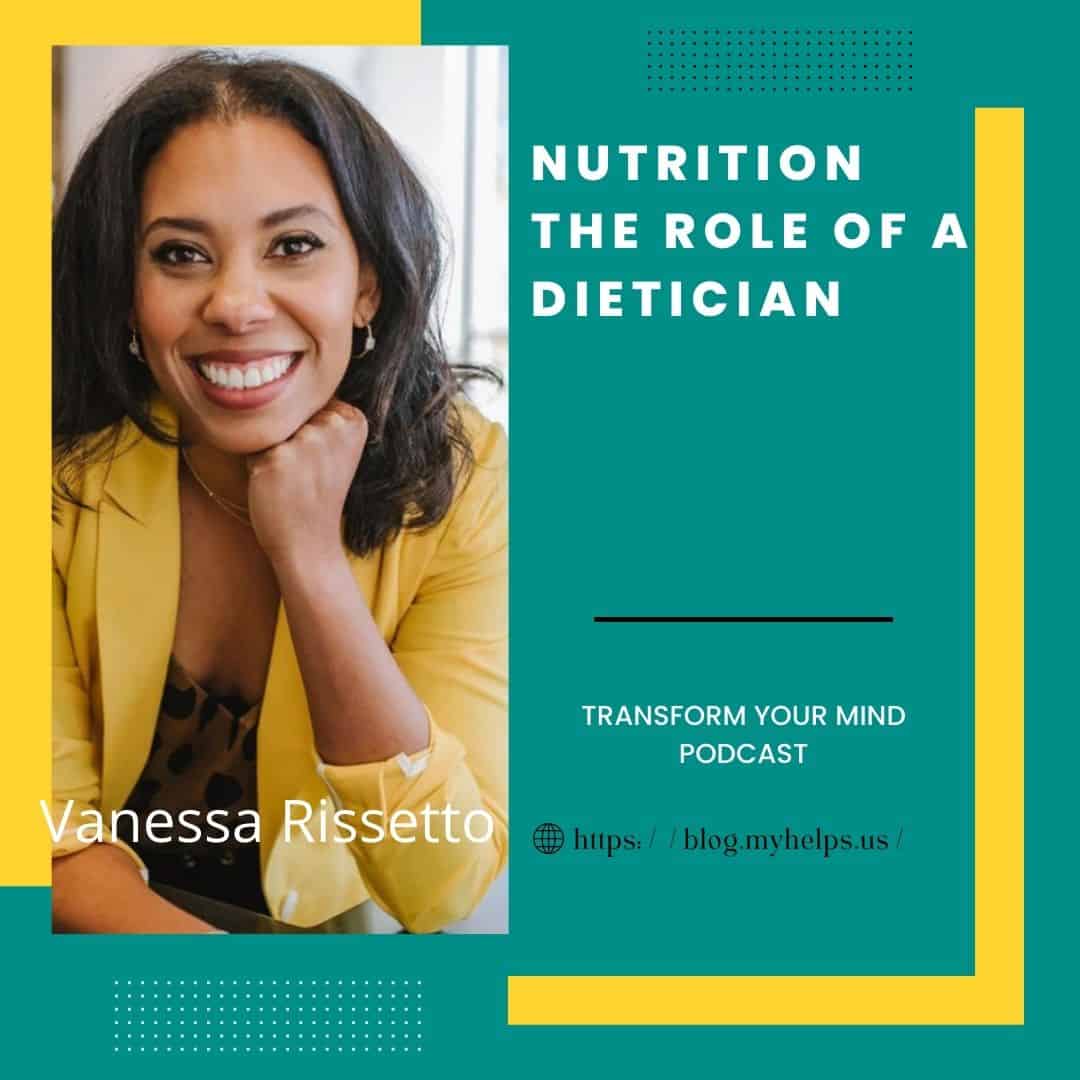Carly Hayes discusses the importance of using a cgm to improve, metabolic health, and why, blood sugar, is connected to longevity and overall well-being. Metabolic health, refers to how our metabolism processes energy and uses the food we eat to fuel our bodies.
Less than 7% of Americans are metabolically healthy, indicating a widespread issue with the efficiency of our metabolism. Monitoring, blood sugar, using a cgm, also called a, continuous glucose monitor, is a key aspect of, metabolic health, as it provides valuable information about how our bodies are processing food.
Continuous glucose monitoring (cgm) technology allows individuals to track their, blood sugar levels, in real-time and make informed decisions about their diet and lifestyle to, optimize metabolic health. Carly explains how cgm can be used to identify patterns and trends in, blood sugar response, to different foods and activities, and how this information can be used to make meaningful changes to, improve metabolic health.
Download the podcast here:
How is Metbolic Health Measured
Myrna: So right off the bat, because I had never actually heard of that term before, and I see that your company is labeled as a, metabolic health, company. So tell us, Carly, what exactly is, metabolic health, and what does this entail? I know one of the prongs of it is diabetes, but I think that it encompasses more things. So can you talk to us about what exactly is, metabolic health?
Carlee: Definitely one of my favorite topics to get into and shout out to Dr Peter Attia and The Outlive book. If you haven't read that, that's a really great place to get started on all things, metabolic health, and really level up that knowledge. But when we look at, metabolic health, that word sounds a lot like metabolism. So I like to simplify it a little bit and just think about what even is our metabolism and how can we use that information, because we know now that this is the key to longevity. This is the key to living a healthy lifespan and having a good health span. So when we think about, metabolic health, this is kind of this umbrella term that encompasses how our metabolism works.
And if we break that down just a little bit more, what that means is your metabolism is how you process energy. This is how your body takes the foods that you eat and all the factors that you put in to your body and uses that to fuel you throughout the day. So if we're looking at metabolism, some of the things that might tell us how our metabolism is doing are what we'd get in a normal lab draw at our doctor's office, right? So you get a glucose lab, you get your cholesterol, your lipids, also your weight, your waist circumference are kind of encompassed in that category.
But all of those different metrics just tell us that one thing. How is our metabolism doing? Are we taking the food that we eat and using it efficiently? And the scary statistic that's been thrown out a lot lately is that less than 7% of Americans are metabolically healthy. So, like 93% of our population has some sort of issue in the efficiency of their metabolism. So that's critical, right? That's really, really important for us to look at. And I think the thing that I always want people to know is that you have the power to change your, metabolic health, to optimize it and improve it for the future.
Try Nutrisence cgm for Yourself

Have you been trying to lose weight and can’t lose a pound even though you have tried everything!
Well so did I, so when I heard about Nutrisense Continuous glucose monitor I had to give it a try.
A cgm monitors which foods spike your glucose as this contributes to weight gain.
Been using my cgm for about 1 month and the lbs have started to fall off. All I do is scan after each meal!
Right now Nutrisense is offering my listeners and friends $50 off your first month. Head over to www.Nutrisense.io and use code MYRNAPW
A cgm monitors your blood sugar continuously
Because from its basic standpoint, this is the things that we're putting into our bodies and doing in our lifestyle every single day that influence that metabolic health. And what I do, what, Nutrisense cgm, does specifically, is we look at one part of that. We look at glucose or blood sugar, which I think everyone's kind of this is a buzzword, right? We're all thinking about, blood sugar, and how to, improve blood sugar levels, even if we don't have diabetes.
And that's because of a couple of reasons. But the first is it's really easy to monitor and it tells you a lot of information. So when we look at, blood sugar, this is basically a sign of how our body is taking that food and how it's processing it. And so what I always like to say is our body is really good at keeping glucose or blood sugar, which is the fuel that fuels our body and keeps us going from day to day in a really stable range, right?
But what happens when we have factors in our life and we all do that, push it outside of that range repeatedly, that's when we run into issues. So if we look at a normal metabolism, right, if we eat a meal, what's going to happen is that our, blood sugar, is going to go up, and that's normal. That's exactly what we want to happen. That's a normal impact of having a balanced meal. And what happens then is that we have this hormone, and we can dive into that a little bit more, called insulin, that comes in and helps move that blood sugar from our blood into our cells so that we can use it.
Ad

Moosend is the simplest and most modern solution to deliver email marketing and automation experiences that drive real revenue growth.
Start Free: No credit card required, 30-day trial all features included.
https://trymoo.moosend.com/s7ocapy0qdmy
How cgm helps with dysfunctional metabolism
And if we have a dysfunctional metabolism, which, again, is a lot more common than I think we realize today, what happens is we eat that same meal, our blood sugar goes up, but we don't have the same insulin or that same hormone response to bring it back down into range. So it stays up for longer. We run into all the issues that cascade as a result of that, which we can get into those in detail. But what's happening is we're unable to kind of bring that down and self regulate.
And what's cool about Nutrisense, what's cool about monitoring your blood sugar is you can see that, right? If you're monitoring how your blood sugar is doing, you can see how your body responds to every single meal or factor in your life, and then you can proactively address anything that's keeping it up in that range that we don't want to see to avoid those complications later on. So I think I always think of glucose as kind of the lowest hanging fruit, right? It tells us so much information about our metabolism in our body, and then it tells us where to put our energy and our focus to make meaningful changes long term.
Myrna: Yeah, well, I'm soaking in all this nutrition. I'm actually reading at night. I'm reading Stephen Gundry's book, The Keto code, it's called and basically there he talked specifically about what we're going to be talking about later in the show, which is, continuous glucose monitoring, because he's saying that you need to know how your body responds to different foods. And when we prick our finger in the morning or whenever you prick it, that's not giving you an idea of continuous.
How does cgm monitor glucose levels
For instance, you just said that, yeah, when you eat, you expect your blood sugar to spike, but if you continue monitoring it, you can see if it's going to come down or what is it doing and things like that. But the question I had for someone that's listening and want to understand, metabolic health, so is glucose monitoring the main issue in, metabolic health?
Myrna: So let's say that when I'm having this urge to eat sweets, my blood sugar is okay. So let's move now to the, continuous glucose monitoring. So let's say that let's talk about what diabetes is. So you've eaten, you've got this glucose in your blood. The insulin is there to get rid of the glucose in your blood and get it to your muscles or get it to your cells. But because you've got diabetes, it's still in the blood, right?
So when we have this, continuous glucose monitoring, one, it's telling us that the glucose is still in the blood, I'm assuming. And two, like me, let's say that I ate a meal and I have a spike in my blood sugar, but maybe then it dropped and then I crave sweets, take us through what this, Continuous Glucose Monitor, does with those type of issues.

Carlee: So this is a cgm. So this is the actual thing that sticks in your arm. So, Continuous Glucose Monitor, and I don't have it opened, but if you've seen most people I think have seen this, but it's just a small little it looks like two quarters stacked on top of each other and you insert it into the back of your arm. It doesn't hurts, but it monitors your, blood sugar, continuously per the name for two weeks. And that's really cool because you can see it at all times a day, not just when you're fasting or on average, you see it overnight, you see it for every single meal.
And that information is delivered to your cell phone. So, for instance, we use our own app, but if you use any, cgm, they'll have their own app that you can use. And then in real time, as soon as you scan it or it goes to your phone, you'll see what your glucose is doing in that moment. I think there are a couple of things that it can do or the benefits of the cgm for that reason. The first is that in real time, you are able to see how your decisions impact your metabolism or your, blood sugar.

A cgm give you information in real time
So I think if we look at all the different things that we do for our health, or say you have a health goal of losing weight, right, say you are following a specific diet plan or an exercise plan, how long does it take you to see those changes pay off?
You're doing all the hard work, you're putting in the time and the effort, but you might not see those changes for a month, two months, right? It depends. It's not that linear process. And I think sometimes that can be really frustrating for you or for anyone trying to make a goal because it feels like you're putting in the work and not seeing that payoff. I think the benefit of the cgm is as soon as you make that decision, you see it impact you either in a good way or in a not so good way.
And it's that real time data that helps you first learn. I always say the first couple of weeks of wearing a cgm is 90% learning. You're just learning about your body. You're curious, you're trying to see what different foods or activities do to your blood sugar and how that relates to how you feel. And then once you kind of feel good with your data, then it becomes a behavior change piece. It keeps you accountable. You see that change.
You know exactly what happened. And you can use that as kind of a reinforcement to stay on a good path and know that you're making the right decisions in the moment. Those are the big things that are really cool about the cgm.

cgm's tells you Your homeostatic range
Myrna: Yeah, but I still don't get it. So I want to use real experiences so that me and someone's listening can understand. So when you eat, let's say you eat pasta, your blood sugar is going to spike. It spikes for everybody because that's pasta. So what is this cgm telling me? Telling me that when I eat my blood sugar spikes, are you saying that somebody might eat pasta and it doesn't affect their blood sugar?
Carlee: Break it down a little bit. No, I got you. It's a lot to take in. But, yeah, when you eat a meal, you said it perfectly, your blood sugar is going to raise and it's going to fall after that spike. And that's a normal, healthy metabolism. So within any single response to a meal, you're going to see a peak and you're going to see it come back down. But really what you're looking for in that cgm data is, what does that look like? And there's a lot of small nuances here that I'll try and paint a picture, but what we're looking for is we want that highest value after you eat, to be below a certain level.
And there's a lot of debate about what that level, that quote unquote level, should be. But for a normal, healthy person, from the research that we've seen and we've done, we want to keep that below a peak of 140. So essentially, that's telling you that's where that homeostatic range is. That's where your body's trying to keep it. And if it's going above that range, that's a sign that maybe that meal didn't work really well for your body. Right. If it peaked a little bit higher, that might be a sign that that pasta, hey, we need to adjust that a little bit. So I'll get into maybe some changes that we could make if we have that high spike. So that's first you're looking at the peak. How high are you going?
The other thing you're looking for is how big of a shift you had in your glucose. So we kind of talked about that blood sugar roller coaster, right? If you're having large shifts and then spiking down, that can be a sign that something's not going well or that meal didn't work well for you. Similarly, if you're starting at a really low stage in your blood sugar and then spiking really high, that's. A big shift.

Metabolic health, Diabetes and cgm
So what that's telling me is, hey, my body responded really strongly to this. This is a big glucose shift, and we want to keep it in that stable range. So this might be something I want to pay attention to. How can I reduce the amount of that shift? And then the third and last thing is how quickly that blood sugar came back down to my pre meal values. So we've already looked at how big of that shift was, what that total peak was, and then how quickly did it come down. And this is essentially telling you, how well did my insulin get me back down to that homeostatic range, right? Was I able to recover from that meal or did I stay really high for really long?
And all of those pieces together tell you how your body tolerated that meal. And so, again, if you have diabetes, a little bit of that is out of your control, right, because your insulin isn't working or responding as well as it should be. But if you're seeing that, then there are definitely some changes you can make in your diet, in your lifestyle to help improve that response. And that's where we hear that term insulin sensitivity a lot.
And that's a good thing. That means if you are insulin sensitive, you are sensitive to the effects of insulin, and your body's able to bring that back down and kind of keep you in a really good range for whatever meal that you have. If you are insulin resistant, on the other hand, which is the defining characteristic of type two diabetes, that means that, hey, your body's trying, right? It's producing that insulin, but we're just not responding like we should.
And so either that blood sugar is spiking too high, or we're staying really high for really long, having big spikes from meals that maybe shouldn't have that big spike. So if we look at that pasta example and this is where I get really excited, because this is where we can make changes and we can try different things and experiment. So say I have that pasta meal and I spike really high. I go above that 140 range, and I know that maybe that was just a larger spike than I want to see.
There are definitely some lifestyle or diet changes we can make. And the first one, and you kind of alluded to this is like your carbohydrates. How can you improve either the type of carbohydrate you're having to help your body process that better, or can you adjust maybe the portion size of that carbohydrate so that it's the right amount for your body? And you did a great job of saying that when insulin comes in and tells our body to bring that blood sugar down, it's bringing it into our muscles.
And that's a huge sink for glucose. That's like our storage space for glucose. It's kind of our secret weapon for handling carbs. And so the other thing we can look at is, well, can we add movement or exercise around this meal so that we can use those muscles as a sink for that glucose and kind of help it soak up that from the blood so that it's not staying there for too long. So if we're seeing kind of some differences in the spike, the shift, or the return to baseline, those are some levers we can pull, and there are so many more we can get into, but those are some levers that we can have that control over and optimize how we responded to that meal.

The Nutrisense cgm program
Myrna: Tell us about Nutrisense cgm
Carlee: Well, each sensor, the sensor that we use right now, and I think the technology is expanding, it's growing, which is awesome. The technology we use right now, which is the freestyle cgm, lasts for two weeks. That's just kind of the life of the device. But there's a lot of cgm companies. Ours includes two CGMs per a month. So you essentially get a whole month of data. You just have to switch your cgm in between that month so that you can continue monitoring. So for some people, one month might be perfect, right? If you just want to explore and learn, maybe that's perfect. But if you have a larger goal weight loss or prediabetes or you're trying to manage your own diabetes, then a longer monthly plan might work better.
So even if you don't wear a cgm forever, which most people don't, right? You might wear it for periods of time throughout your life just to see different seasons of your life and how your body's responding. But you'll have that data forever, and that's the power of it. So assess what you normally do one to two weeks. So maybe your first sensor, you're just getting a baseline. You're learning. And what I do, what our team of nutritionists do, and this is what I love what I do, I help people interpret that because, you know, just from this conversation, it's a lot, seeing that peak and the shift and how quickly it comes down.
So I think having an expert there to kind of help unwrap that and untangle it with you and kind of connect it to your goals is really helpful. And then after you've established that baseline, you know what your normal blood sugar is, then you can start experimenting and trying different things and making small Tweaks and observing how they improve your glucose so that you have kind of a set up plan to keep you on the right path lifelong.
Myrna: Well, you also did a great tip or great hack there. And I'm not sure if people noticed it, but I paid attention to it. You said that if you eat protein with your carbs, then it slows down your insulin spike. That's pretty good. When you were talking, I'm thinking, okay, so I don't eat spaghetti. Rarely that do I pasta. But there was a time when you would have spaghetti and meatballs or spaghetti and whatever when I had little kids around, because little kids seem to like that.
Conclusion
Myrna: So how can listeners get access to your cgm tool? Tell us about your website. Your social media handles awesome.
Carlee: Yes. So if you want to learn more about Nutrisense cgm, so, continuous Glucose Monitoring, for Proactive Health, preventative health, or just if you have prediabetes or diabetes, you can find more about us at Nutrisense IO. And that is our website. We have a lot of information about our team and kind of what we offer there. But if you want to just learn more, I think we always posting really fun stuff on Instagram, Facebook, Twitter.
We're also on LinkedIn, so you can follow us at Nutrisense IO on those as well. So I always tell people that, you know, I'm really passionate about CGMs. I'm sure you know that by now. But even if you don't want to measure your blood sugar, even if that doesn't interest you, you can still do some of the hacks that we talked about today. You can still do those things that optimize how your body's processing that fuel.
Myrna: That's beautiful. All right, guys. Thank you, Carly. Thank you guys for tuning in. And if you're listening to this on itunes, we'd love for you to rate and review and subscribe. If you're watching this on YouTube, we'd love for you to subscribe. I bring you quality guests like Carlee every week so that you can transform your mind, so you can transform your life. Until next time, namaste. Bye for now
Additional Resources
https://blog.myhelps.us/intermittent-fasting-does-it-work-for-women/








